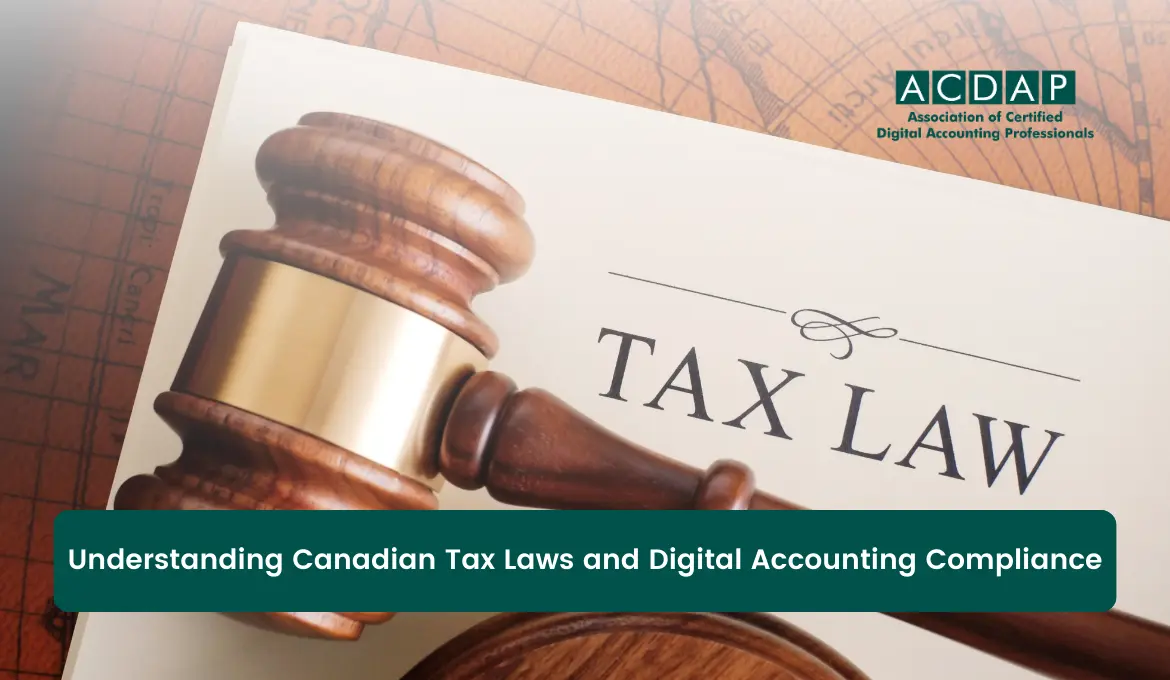Overview of Canadian tax laws
In Canada, businesses must follow specific tax laws, including collecting Goods and Services Tax (GST) or Harmonized Sales Tax (HST) on their sales. Companies must also file income tax returns and pay corporate taxes based on their profits.
Digital accounting tools can help businesses keep track of these taxes. They automate calculations and record-keeping, making it easier to comply with tax laws and avoid mistakes.
Using digital accounting for tax reporting
Digital accounting software can simplify the process of tax reporting. It can automatically calculate GST/HST and corporate taxes, generate reports, and prepare tax returns.
By using these tools, businesses can ensure their tax calculations are accurate and submit their reports on time. This reduces the risk of errors and late fees.
Ensuring accurate tax calculations
To comply with Canadian tax laws, your accounting software needs to calculate taxes correctly. This means setting up the software to apply the right GST/HST rates to your sales and deductions.
Digital accounting tools can help by automatically updating tax rates and rules. This ensures that your calculations stay current with any changes in tax laws.
Keeping detailed records
Maintaining detailed records is crucial for tax compliance. Digital accounting software allows you to keep all your financial documents in one place, including invoices, receipts, and bank statements.
With these records easily accessible, you can quickly provide necessary documents during tax audits or reviews. This helps in proving that your tax filings are accurate.
Filing tax returns electronically
Most businesses in Canada are required to file their tax returns electronically. Digital accounting tools can help you prepare and submit these returns online.
Electronic filing is faster and more efficient. It also minimises the losing documents risk and ensures that your returns are filed on time.
Managing tax deductions and credits
Digital accounting software can help you manage tax deductions and credits. It can track expenses that qualify for deductions and ensure that you get all the credits you are eligible for.
This helps reduce your taxable income and potentially lowers your tax bill. Proper management of deductions and credits can lead to significant savings.
Staying compliant with tax regulations
Digital accounting tools can help you stay updated with the latest tax rules by providing updates and notifications.
Regular updates ensure that your accounting practices remain compliant with current laws. This helps you avoid penalties and maintain good standing with tax authorities.
Seeking professional advice
Even with digital accounting tools, it's wise to consult with a tax professional or accountant. They can provide proper guidance on complex tax issues and ensure that your business is fully compliant with Canadian tax laws.
Professional advice helps in making informed decisions and avoiding costly mistakes.
Training and support for accounting software
Make sure you and your team are trained to use your digital accounting software effectively. Many software providers provide training and support to help you get the most out of their tools.
Proper training ensures that you use the software correctly and make the most of its features. Don't hesitate to reach out for help if needed.
Conclusion
Understanding Canadian tax laws and using digital accounting tools can simplify tax compliance for your business. Choose the right software, keep accurate records, and file returns electronically. Stay updated with tax regulations, manage deductions and credits effectively, and seek professional advice to support your business's tax needs and ensure compliance.


























